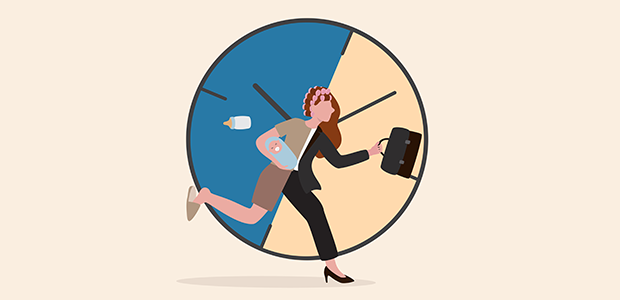
Neurodiversity, startups, and parenthood: which straw is breaking mothers’ backs?
We’ve all heard of the motherload, that invisible rucksack full of mental lists, guilt, and responsibility that so many women carry. Eve Rodsky’s book Fair Play helped put a name to it. But even with all that talk of balance, I still find myself asking: what happens when you add neurodiversity to the mix?
I’d like to think that I’m an independent woman, running both a private clinic and a start-up supporting neurodiverse parents just like me. I would also like to think that my husband and I share parenting equally. But the truth? We don’t. And it’s not because either of us is lazy or uncaring. It’s because neither of us understood what neurodiversity would mean for our family, for our child, for our relationship, and for our mental health.
The unseen weight
Neurodiversity doesn’t just affect the child. It affects the whole family system. The energy it takes to parent, protect, and advocate for a neurodivergent child is relentless. It’s the emotional version of a daily marathon you didn’t train for and if honest you didn’t even sign up for.
Imagine your child wakes up and refuses school, not because they can’t be bothered, but because they’re terrified. School is a battlefield of noise and unpredictability. While other children float through the day, yours is running their own marathon just to stay afloat.
Getting out of the door takes the negotiation skills of a hostage mediator and the empathy of a therapist. One wrong tone of voice, one rushed “just get dressed,” and you’ve triggered fight or flight. You arrive at the school gates already mentally exhausted and it’s only 9am.
When the world keeps spinning
You try to work. To be productive. To be the adult you used to be before your life revolved around managing meltdowns, emotional regulation, and safeguarding your child’s sense of safety. You’re on edge all day waiting for the school to call. You plan your meetings around potential crises. You carry the constant fear of “What if they can’t cope today?” and “what are the consequence of sending them into school today ?”
Then there’s the idea of being your child’s auxiliary aid. Like glasses help a child see the board, a parent often becomes the lens through which a neurodiverse child can make sense of the world. I’m their safety net, their translator, their comfort blanket. But that role is heavy and full time.
For some families, it’s even heavier. Many of the parents I see in clinic have had to leave work entirely to support their children. The system doesn’t make space for some of our children, the system can’t it is broken but it also doesn’t allow for the load we carry as parents. There’s little flexibility, little understanding. Parents are burning out, not from lack of love, but from lack of support.
The mental health toll
Parenting a neurodivergent child can push you to your edge. I’ve had moments — even as a clinician who knows this stuff, where I’ve fantasised about packing a bag and disappearing for a night, just to breathe. In the early parenting years when my husband asked me what I wanted for my birthday the response was always the same “ A night in a hotel “ he would often then ask “ with me ?” “NO, not with you . I need a night of silence and solitude with no demands on my time, my energy, my understanding or empathy !” And that’s not because I don’t love my children or my husband . It’s because sometimes the weight of constant vigilance, worry, and advocacy becomes too much.
Research shows that parents of children with ADHD are twice as likely to experience relationship breakdowns by the time their child is eight. That’s not surprising. It’s not just exhaustion – it’s isolation. The invisible work of understanding meltdowns, predicting triggers, and creating safety takes place behind closed doors.
When your child can’t go to school, can’t attend a party, or can’t be left even with their other parent without panic it shrinks your world. And that shrinking takes a toll on your mental health.
Finding hope in the cracks
I consider myself one of the lucky ones. My work gives me flexibility and insight into what’s happening in our home. I understand the science behind what we live every day and with very practical strategies I place we as a family are settle and thriving if not still exhausted.
But for many others that is not the case. 41% of parent with SEND children have to leave their jobs to support their child or fight the fight for them. As I work to support other families with my business twigged, I have still on occasion felt like I’m downing and there have been moment where giving it all up feels like the only option.
The truth is, mothers aren’t breaking because they’re weak. They’re breaking because they’ve been carrying too much, for too long, with too little help. This is not just parenting , this is parenting on steroids!
This World Mental Health Day, I want us to look beyond slogans about self-care and balance, often this is not an option for those who are auxiliary aids to their wonderfully diverse children. I want us to start talking about systems that don’t support families, workplaces that don’t flex and understand, and schools that still mistake fear for defiance which only compounds the effect and pressure on parents.
Because no parent, business owner or not, should have to choose between their child’s safety and their own sanity.
For more startup news, check out the other articles on the website, and subscribe to the magazine for free. Listen to The Cereal Entrepreneur podcast for more interviews with entrepreneurs and big-hitters in the startup ecosystem.

